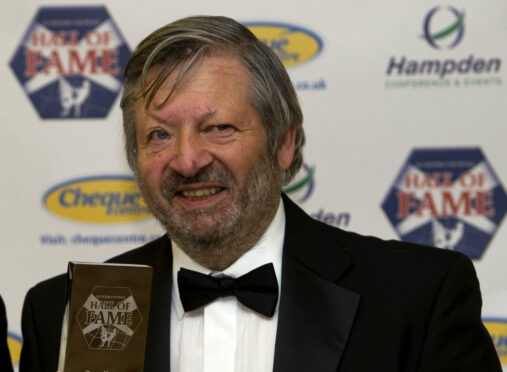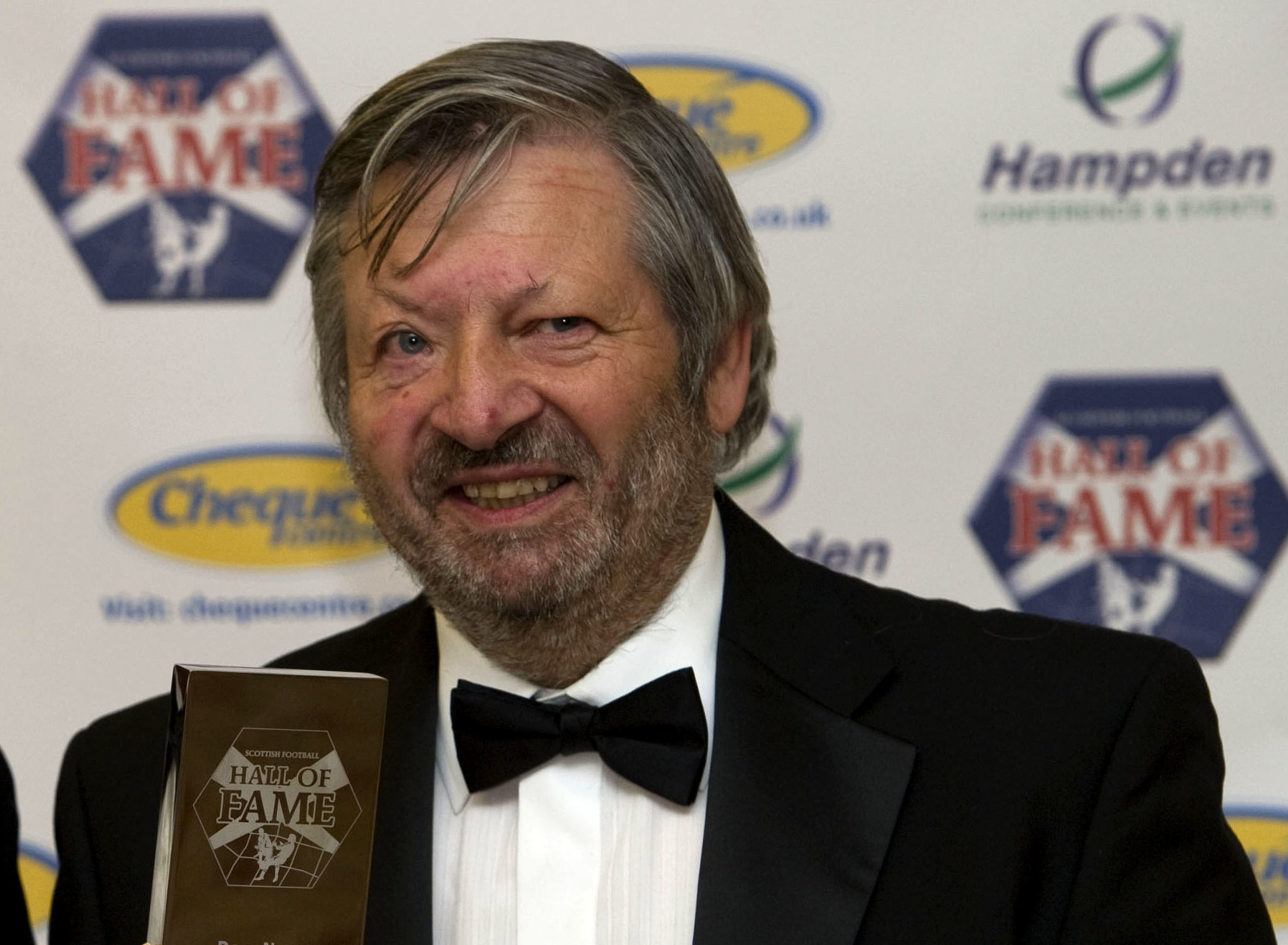Maureen Bissett sent in a photo of the St Joseph’s junior team which won the 1929 Forfarshire Cup at Dens Park, and this was first featured last December.
The Joeys beat Harp in the final, but we didn’t have the scoreline.
I told George Doull’s story last week about his dad James playing in the game, but still we didn’t have the score.
However, Dundee United historian and local author Peter Rundo didn’t just reveal the scoreline — 3-2 — but sent in the match report of the May 4 final, which featured in The Courier the following day.
Under the heading ‘Shocks In County Cup Final: Favourites Fall To St Joseph’s’, it read:
The Forfarshire Junior Football Association claimed the first Saturday of the senior close season the day on which they decided the custody of the County Cup.
No other games, under their jurisdiction at least, are allowed within a radius of four miles.
Consequently, Dens Park held a large crowd when St Joseph’s and Lochee Harp lined up to decide who would wear the blue riband of Forfarshire football for a year.
Harp had disposed of Arbroath Victoria, Violet, Celtic and Lochee United, while St Joseph’s had to overcome Arbroath Woodside, East Craigie and Stobswell.
Up till Saturday, Harp had been returned as champions four times, while St Joseph’s already had their name inscribed on the cup two times.
Taking into account the respective league positions of the teams, Harp undoubtedly started favouries in the game.
The game was only a few minutes started when it was seen they would have their work cut out to retain their prestige.
With five minutes played, St Joseph’s were leading 2-0.
The first caught the Harp defence entirely unprepared.
They stood in a daze and one St Joseph’s player, then another, had a try at beating goalkeeper Gow — and the ball ultimately landed in the net.
They had hardly got over their first surprise when, again, St Joseph’s scored a clever goal, beating Dow all the way.
Harp woke up to the seriousness of their position and, for long spells, they dominated play, though it was only through a palpable blunder by Mulholland that they were allowed to open their account.
The left-back, when the obvious thing to do was to pass back to his goalkeeper, tried to slip it across to his partner on the right.
The eager Duncan, Harp’s centre, intercepted the movement and had no difficulty in scoring.
With this improvement in their prospects, Harp went all out to level the scores.
But the Joeys sprange yet another surprise when McLaren, of Harp, attempting to clear, turned the ball into goal and all but beat his own keeper, the ball striking the crossbar.
Doull was ready for the rebound and St Joseph’s again enjoyed a two-goal lead.
The West End team nearly caused another sensation on the resumption, when, following a free-kick, for the goalkeeper carrying, the post saved a certain goal.
But St Joseph’s had shot their bolt and, almost to the end, it was a case of defence on their part.
Again Duncan raised the drooping spirits of Harp’s supporters by scoring.
Full sail was now set for that equalising goal, and the mystery is how it eluded Harp.
Hard knocks were not awanting and the pace was telling, particularly on St Joseph’s, who were sorely harassed at times to retain their lead.
Perhaps Harp’s anxiety was their undoing, for they were altogether unable to take advantage of the situation which had arisen, and St Joseph’s retained their lead until the end.
President Watson handed over the trophy to St Joseph’s.
The gate receipts were £127.

